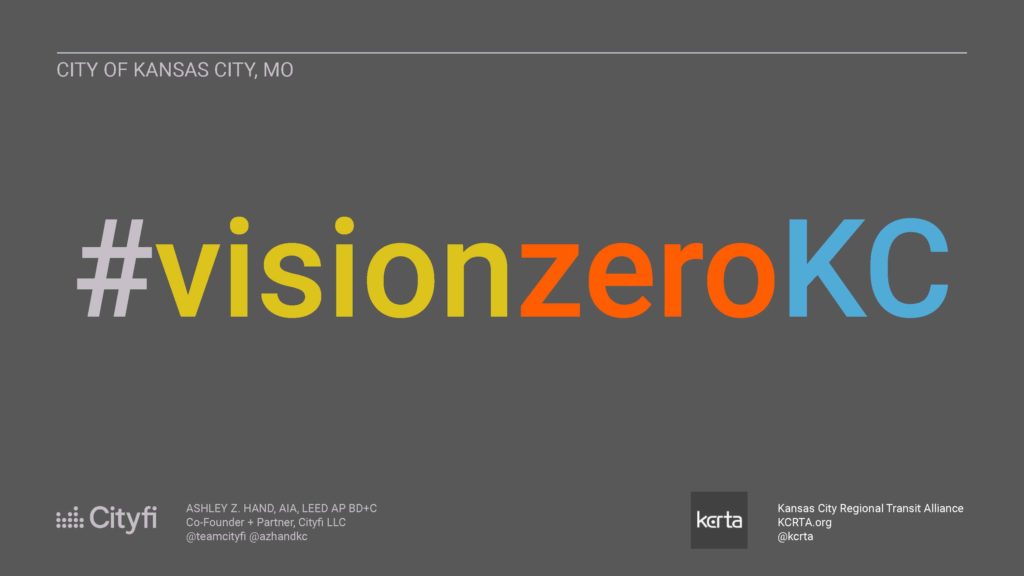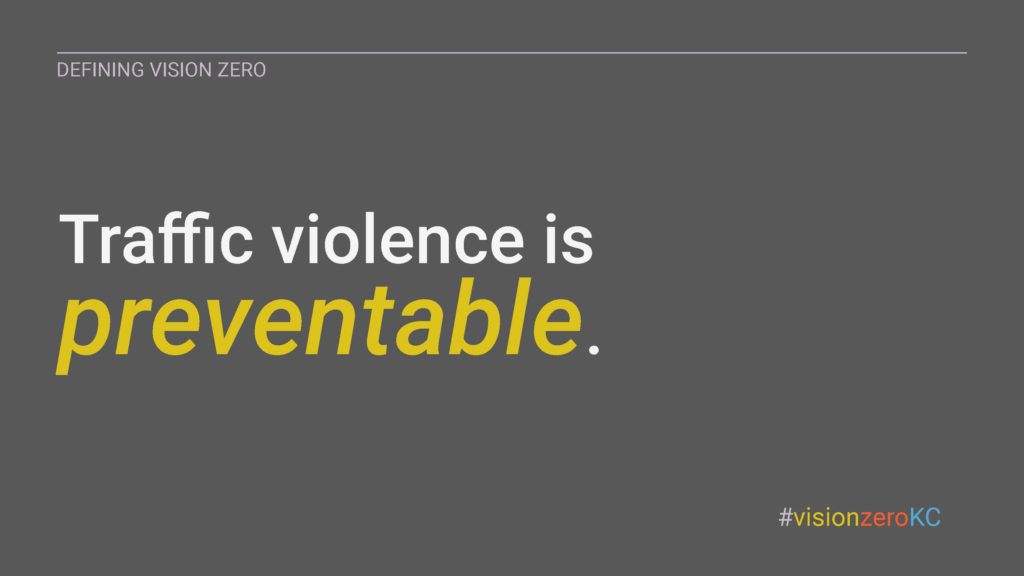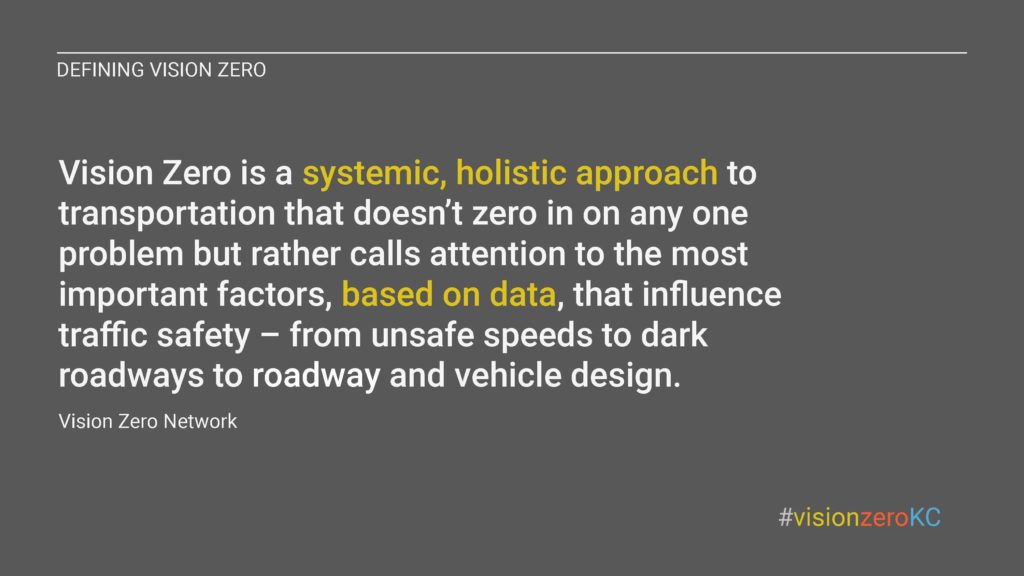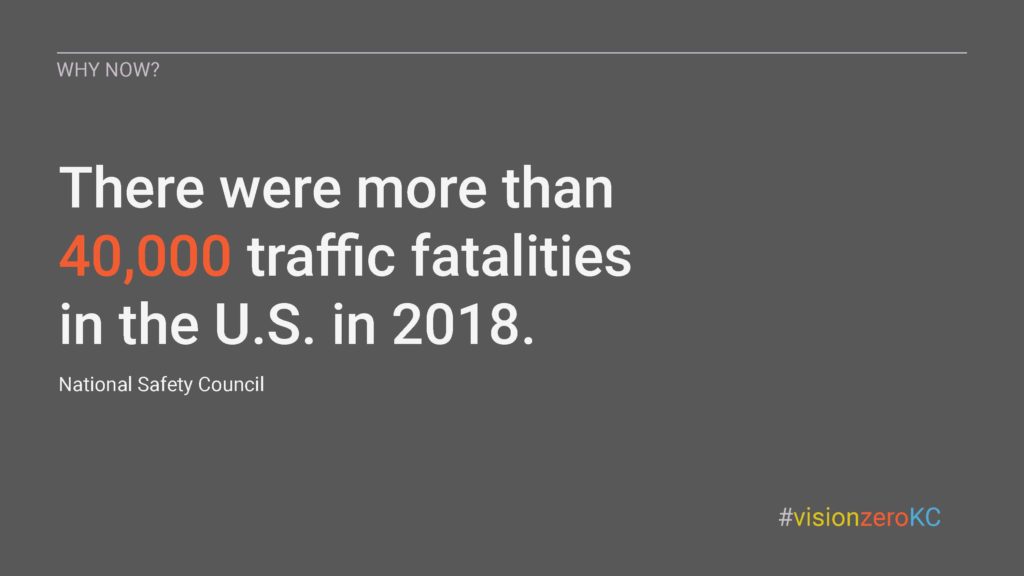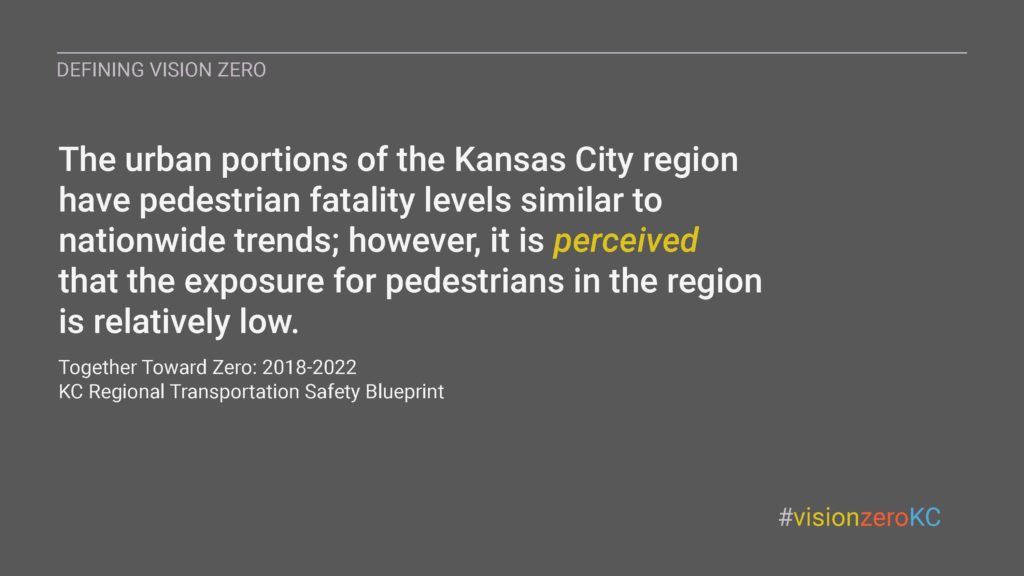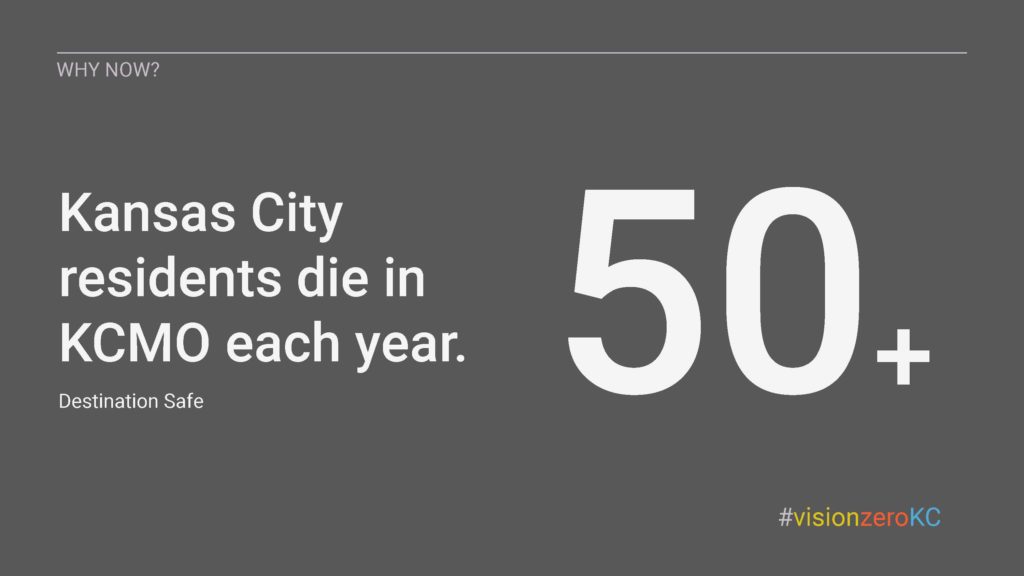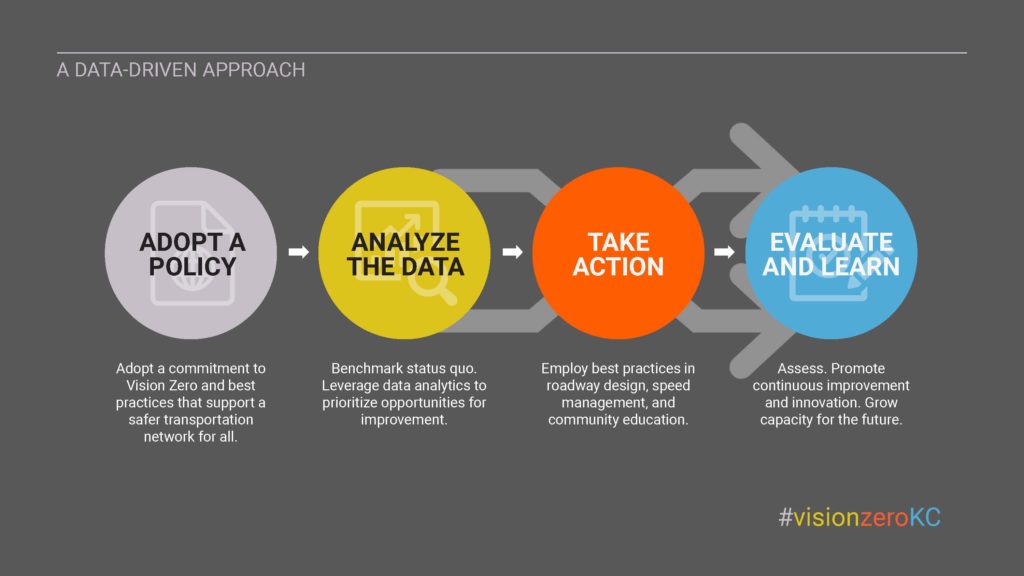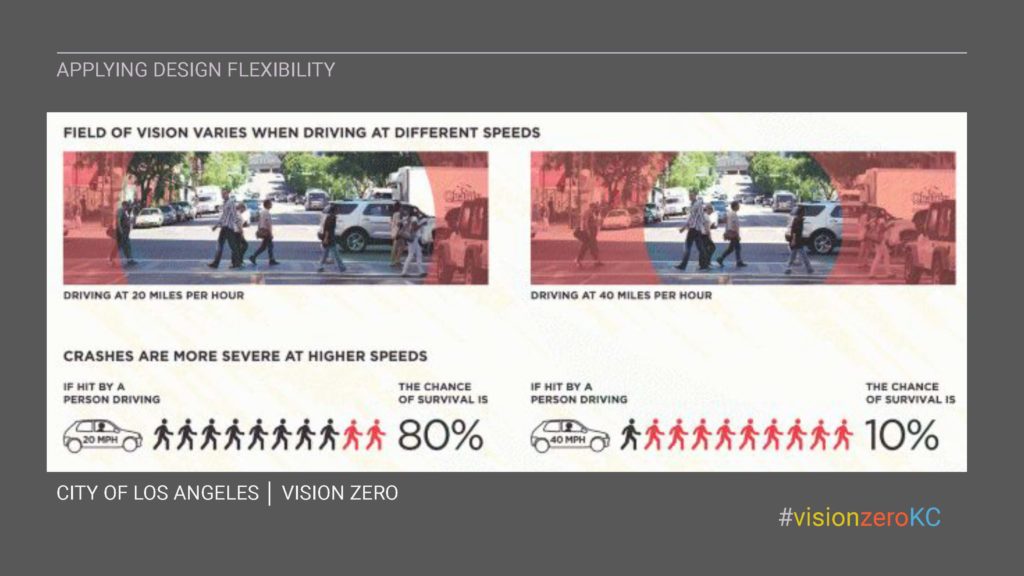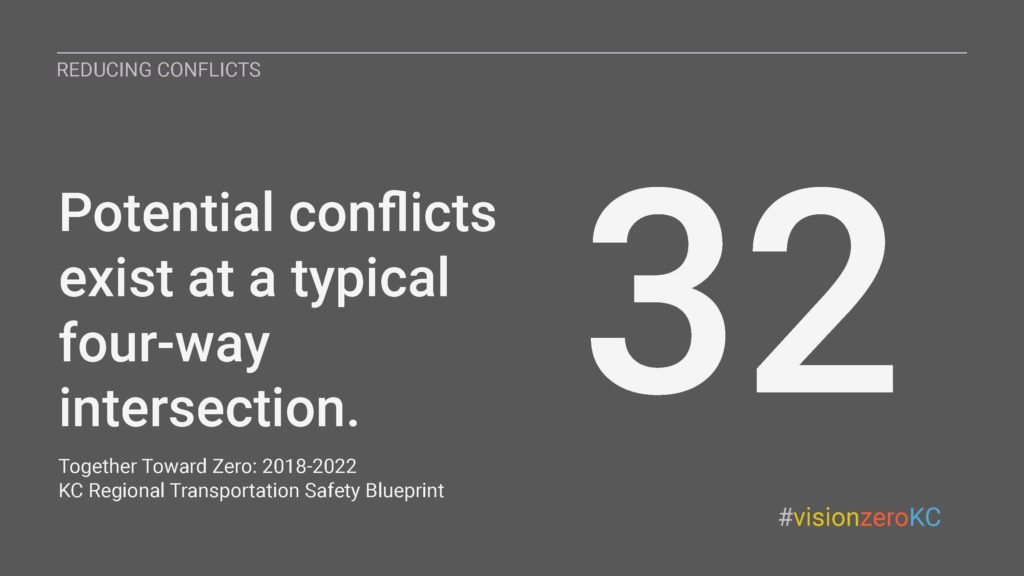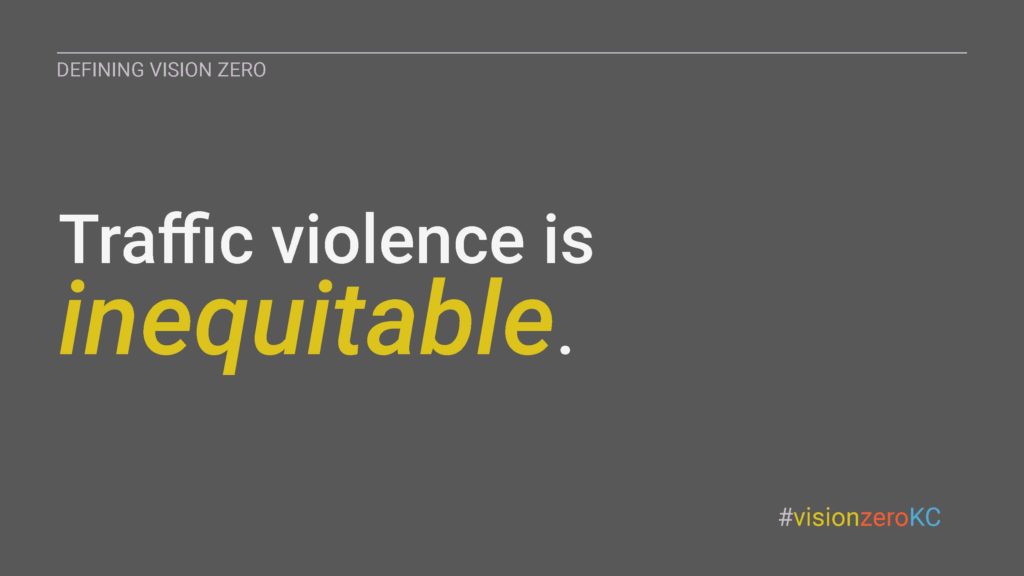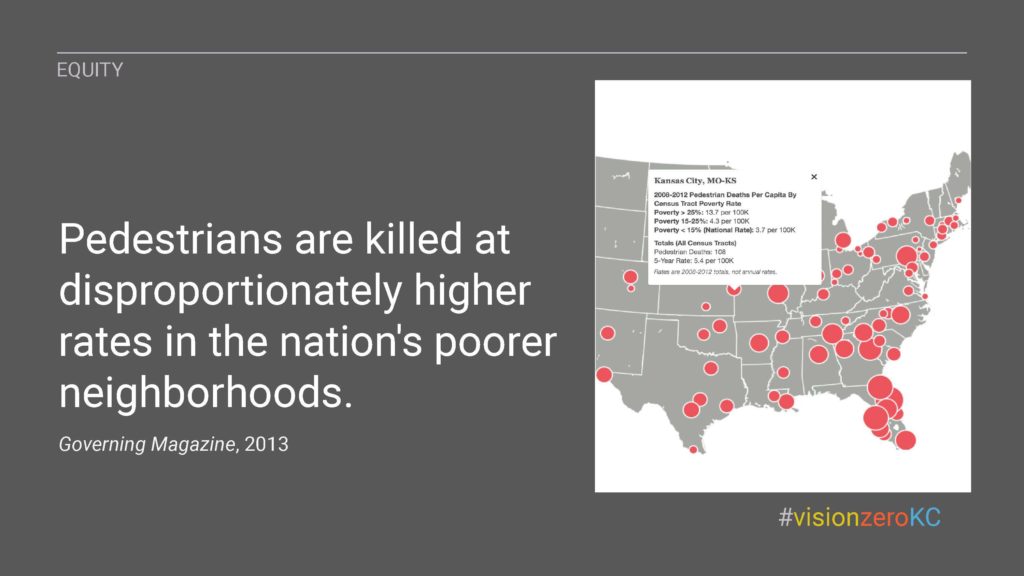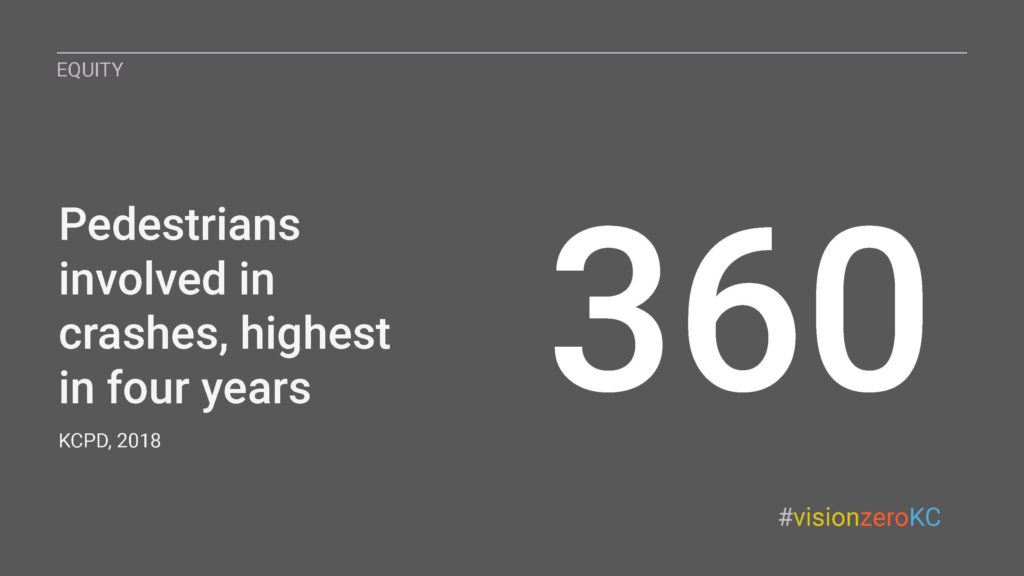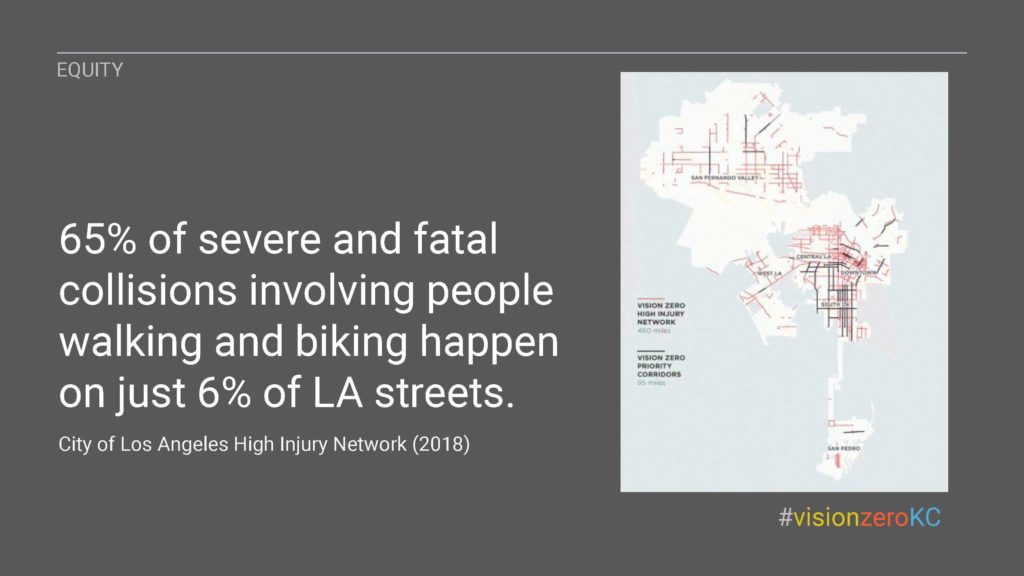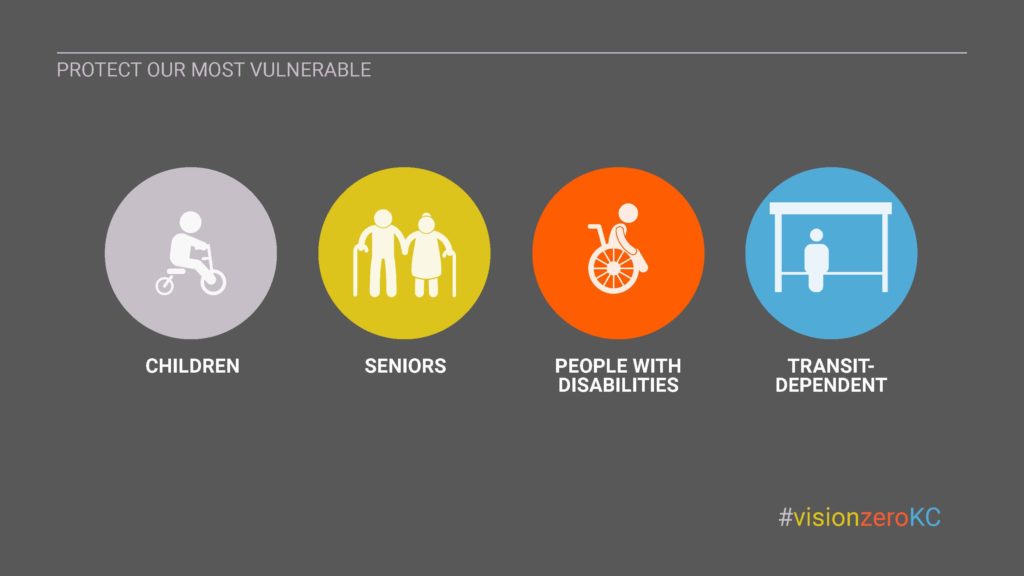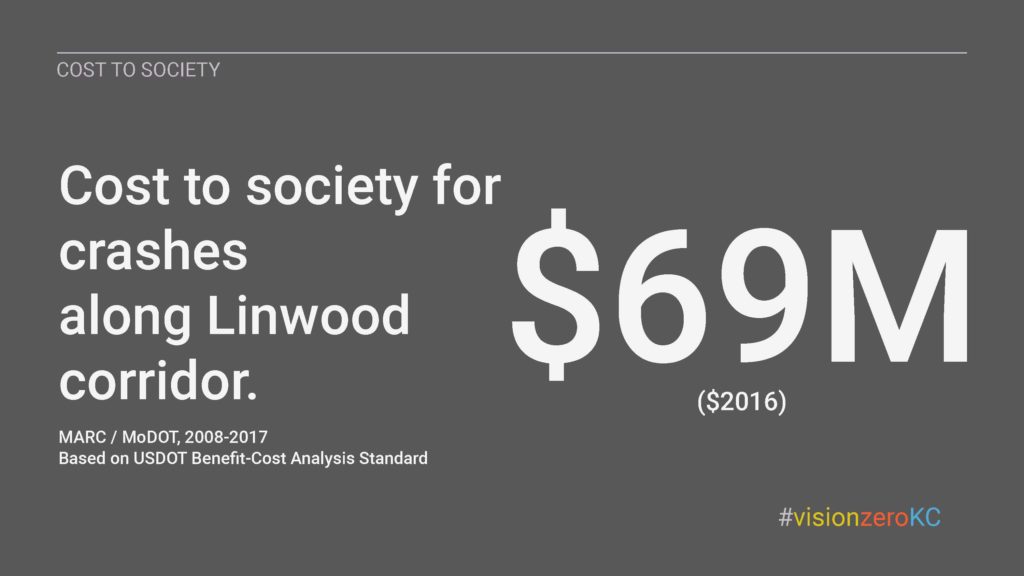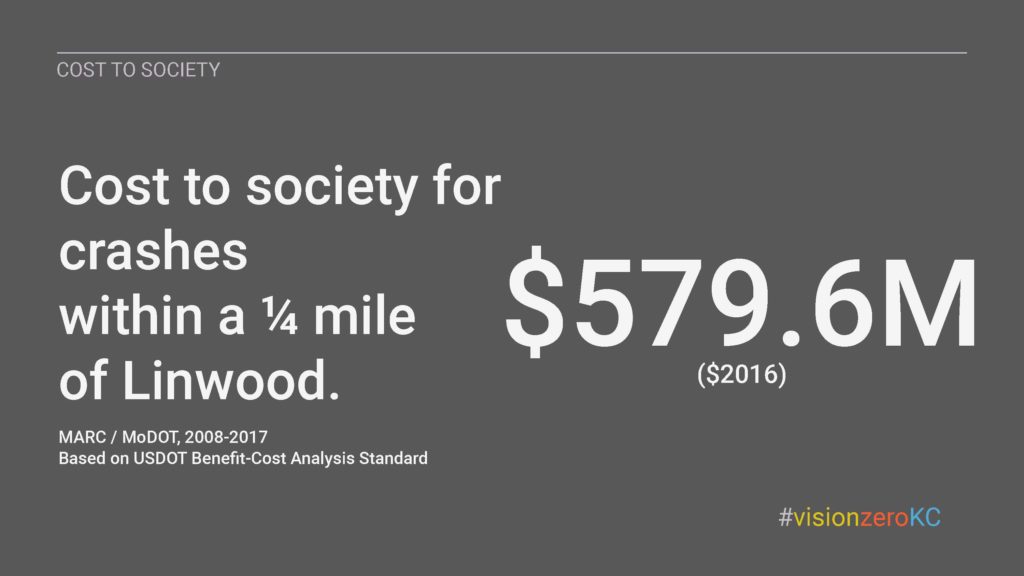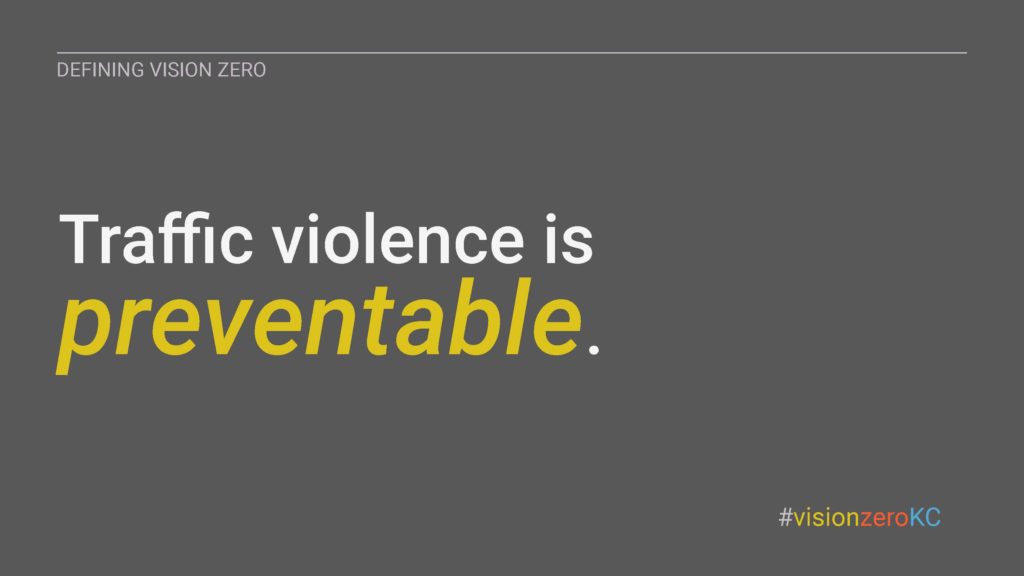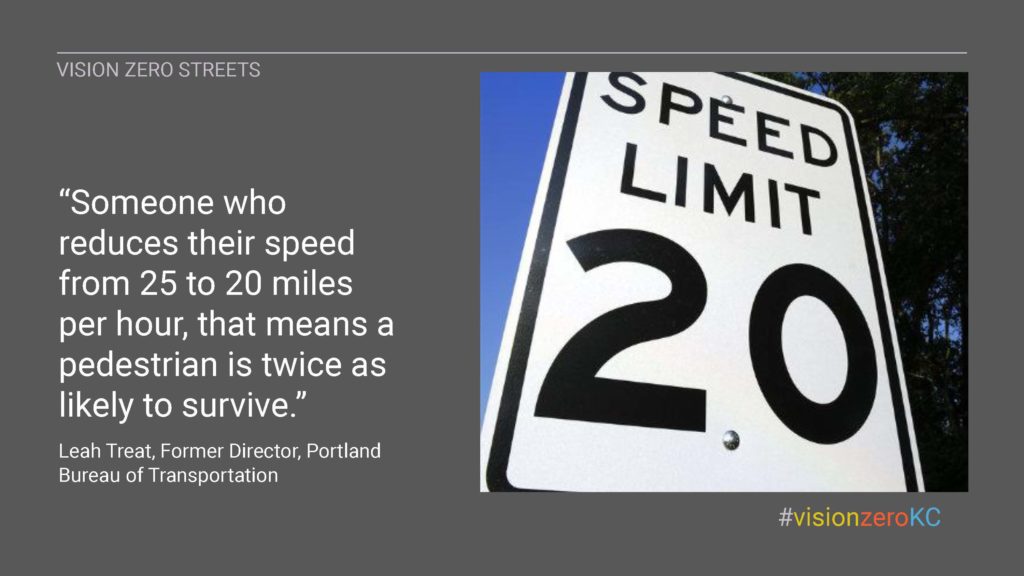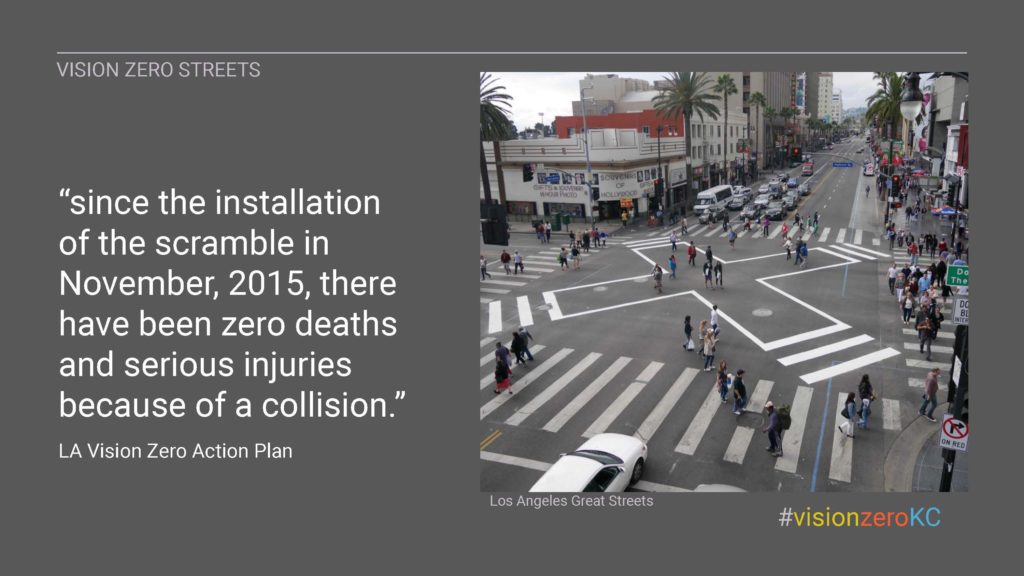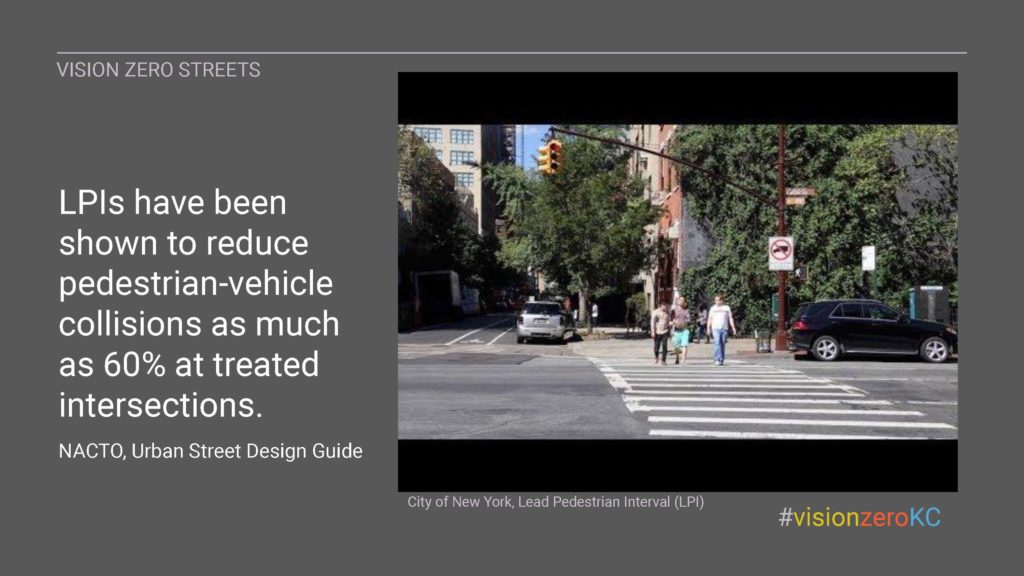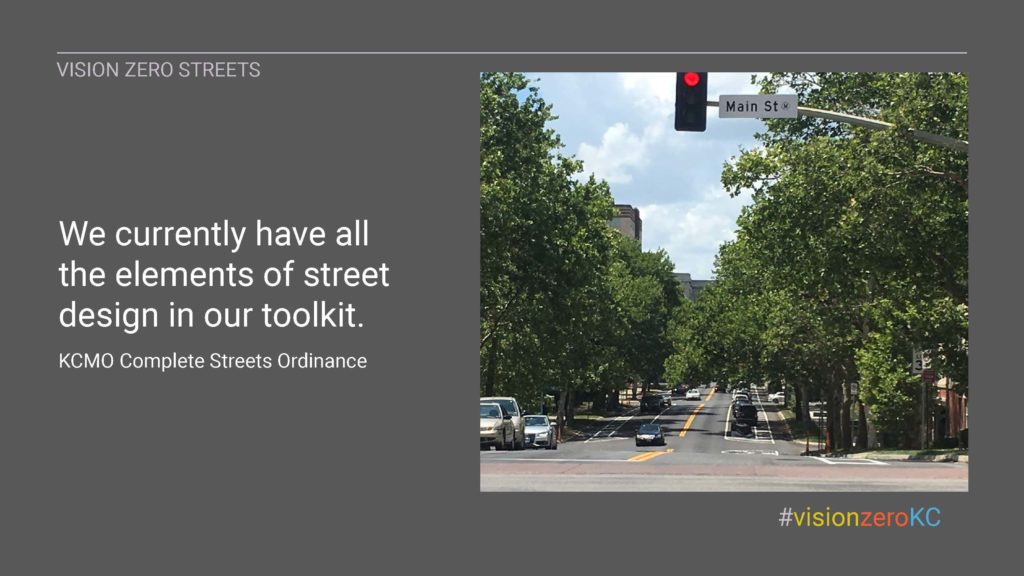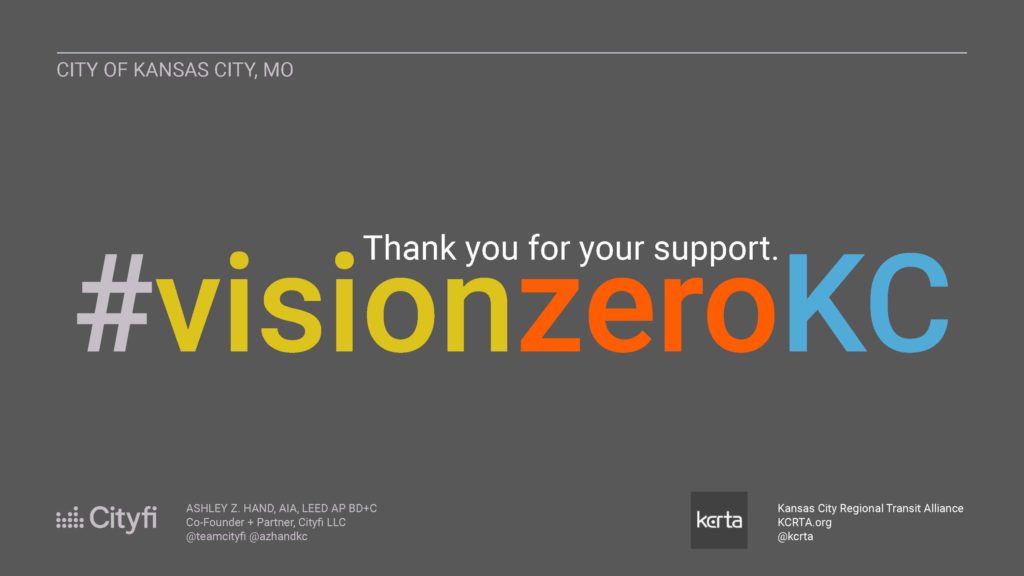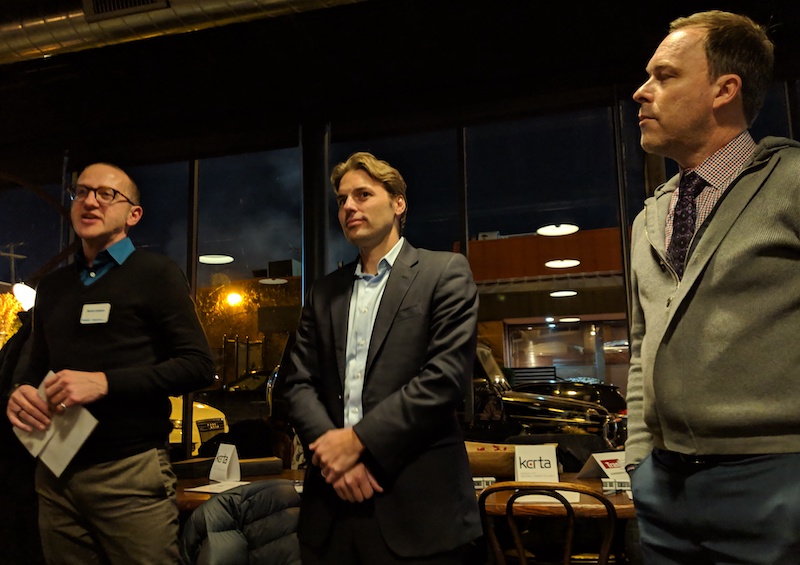Today there is a resolution before the Kansas City, Missouri Transportation & Infrastructure committee to consider the adoption of Vision Zero as a policy. The KCRTA has been actively advocating for such a policy in KCMO and across the region and we’re eager to support KCMO in its effort to make the roads safer for all users. Outlined herein is our formal position on Vision Zero; the KCMO resolution is a start but we have a long way to go and we’re here to help.
Our Position
The Kansas City Regional Transit Alliance (KCRTA) supports regional adoption of Vision Zero because it will make our roads safer for transit riders and all road users. Vision Zero will enhance regional accessibility and quality of life for all, particularly our most vulnerable populations. KCRTA believes a regional approach is necessary to not only help with the standardization of data collection and reporting, but to help leverage best practices, action planning, potential funding, and implementation as Kansas Citians do not live their lives within a single jurisdiction. The KCRTA will support Vision Zero through advocacy and partnerships that encourage the adoption of policies, convene stakeholders to support action plans and projects, and through celebrating the success of jurisdictions as established goals are met.
The Problem
Every year in the United States, more than 40,000 people are killed on our streets and thousands more are injured. Nationwide, the numbers are disheartening:
- Crashes cause 1 of every 4 unintentional injury deaths among children ages 13 and younger. (USDOT Fatality Analysis Reporting System (2018))
- In cities such as Los Angeles, that have analyzed safety across its street network, identified that 65% of severe and fatal collisions involving people walking and biking happen on just 6% of their streets. (City of Los Angeles Vision Zero High Injury Network (2018))
- Pedestrians are killed at disproportionately higher rates in the nation’s poorer neighborhoods. (Governing Magazine, 2013.)
Without proactive intervention, the problem is likely to get worse before it gets better. Americans are driving more, with 3.225 trillion miles driven in 2018 (FHWA, 2019), and distractions have increased as the number of personal technology devices quintupled between 2010-2017 (American Driving Survey, 2016-2017).
While the complete landscape of safety is not clear because of fragmented data collection and public information on traffic violence, the staggering truth is that Kansas City currently ranks tenth in the nation with the most speed-related fatalities; these deaths are entirely preventable. In 2018, Kansas City failed to meet targets for reductions with 251 fatalities. This was a 14% increase from the five-year YTD average, with Jackson County leading with 89 deaths; Clay County with 26 deaths; and Johnson County with 23 deaths (Destination Safe Coalition, 2018 Quarterly Fatality Report). Kansas City also has 64 of the 200 most dangerous intersections in the state. Every single death and injury comes at a considerable cost to our region, with both considerable individual and societal impacts. This traffic violence ultimately creates a fearful and unsafe environment where Kansas Citians lack true freedom of mobility, discouraging transit users, cyclists and pedestrians. Traffic violence is a pressing, but preventable public health issue that is adversely shaping our quality of life in Kansas City.
Vision Zero
Vision Zero is a multi-dimensional framework to eliminate all traffic fatalities and severe injuries, while increasing safe, healthy, equitable mobility for all. “Vision Zero acknowledges that many factors contribute to safe mobility — including roadway design, speeds, behaviors, technology, and policies.” As a strategy, Vision Zero has been successful in Europe, starting with Sweden in the 1990s, and has been adopted in cities across the United States to proactively address traffic violence. It values the importance of safety for all people to move in their community and focuses on a shared responsibility by both system designers and policy makers to ensure safe systems. The cities that have adopted Vision Zero publicly acknowledged that the status quo is no longer acceptable and are actively working to improve leadership, collaboration, and accountability to address traffic violence with every public realm decision.
Vision Zero begins with policy adoption by jurisdictions across the Kansas City region, supported by diverse stakeholders, including transportation professionals, policymakers, public health officials, police, and community members. These policies should include a clear, time-specific commitment to the goal of improving road safety for all users. Since Kansas Citians do not live their lives within one city or county, it is important to have broad regional adoption and collaboration.
Upon adopting Vision Zero, many U.S. cities have found through data collection and analysis that traffic violence disproportionately impacts our most vulnerable communities who rely on transit, walking or cycling to move around, as well as children and the elderly. Vision Zero should be supported by a region-wide data approach to understand trends and identify areas of greatest need for improvement and complemented by a commitment to equity and community engagement. Culminating in local action plans, local jurisdictions can begin working towards reducing traffic violence by curbing speeds, improving roadway design, and educating communities on road safety.
KCRTA Call to Action
The KCRTA supports the adoption of Vision Zero region-wide because it will enhance and improve safety for all transit users and all Kansas Citians for better regional mobility. In its commitment to Vision Zero, the KCRTA will commit to the following actions:
- Convene and encourage multi-sector stakeholder support to advance Vision Zero policies region-wide.
- Connect policy makers and other advocates with resources such as model ordinances, action plans, and key insights.
- Draft a letter of support and advocate for adoption of Vision Zero for jurisdictions region-wide with other stakeholders.
- Convene an annual discussion among stakeholders, as desired, to share best practices and exchange ideas on how to advance Vision Zero goals.
- Celebrate progress in meeting Vision Zero goals at an annual convening.


